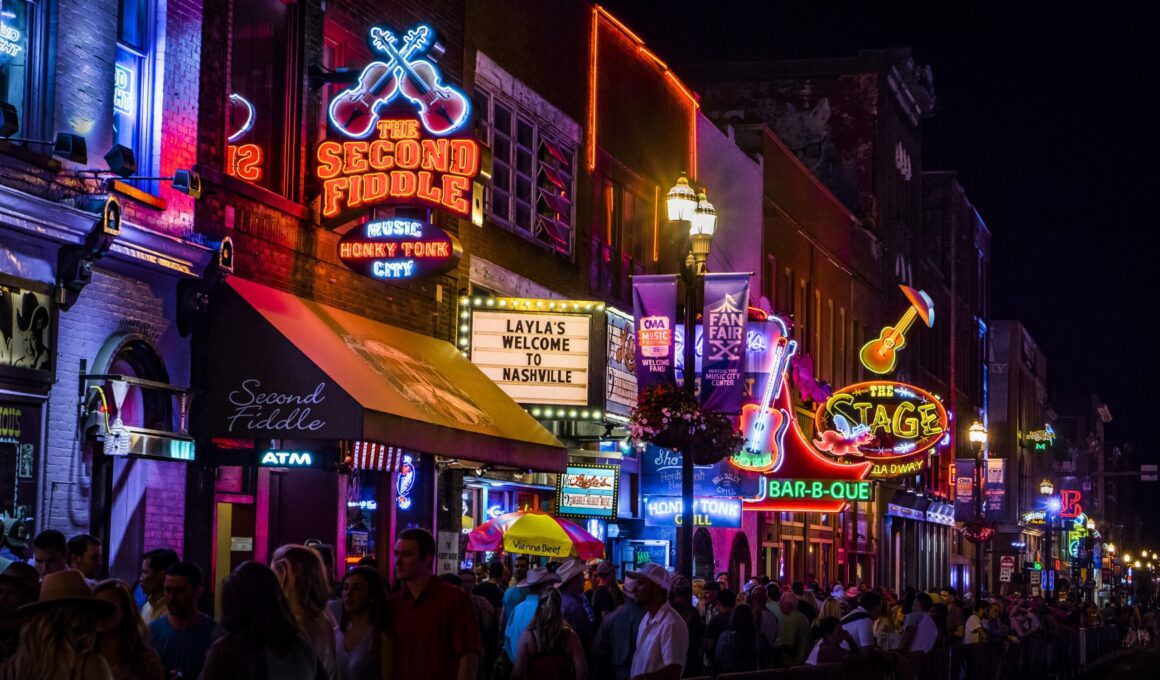Nashville’s not just the home of country music, it’s also home to a prosperous luxury real estate market, according to the latest Wall Street Journal/Realtor.com Housing Market Ranking, released Thursday.
The Tennessee capital topped the luxury cut of the second quarter ranking U.S. housing markets, putting an end to the three-quarter reign of Portland, Maine, which has been knocked down to fourth place.
“A lot of people come to Nashville, and they say ‘I just breathe better here,’” said Erin Krueger at Compass Nashville. “It’s such a dynamic city, it’s clean, it’s easy to navigate, it’s very walkable,” plus there are “wide-open spaces, it’s green [and] the people are super friendly.”
The city has a strong economy, great access to different amenities “and because of that, it’s seen a lot of buyer demand,” said Hannah Jones, senior economic research analyst at Realtor.com. It also ranks well in terms of commute times, has a relatively low cost of living and a slightly lower luxury home price than other wealth hubs in the U.S. “All of those things contribute to bringing Nashville to the top,” she said.
The quarterly index analyzes key housing market data, as well as economic vitality and lifestyle metrics, for the 60 most-active luxury metropolitan areas in the U.S. to highlight housing markets that offer a high quality of life and are expected to see future home price appreciation. It identifies high-end markets worth adding to a house hunter’s shortlist—whether the goal is to live in it or rent it out.
Top 10 Luxury Housing Markets
Wall Street Journal/Realtor.com Housing Market Ranking
The top five cities in the second quarter index were rounded out by St. Louis; Salt Lake City; Portland, Maine; and Pittsfield, in Western Massachusetts.
Across the top of the ranking “we’ve seen prevalence of these markets on the more affordable side of luxury,” Jones said.
“We saw prices skyrocket during the pandemic and [they] have continued to climb,” she added. “That entry point for a luxury home is very different than it was and has buyers maybe looking toward these markets like Nashville, where they can afford something really nice and really special without shelling out the big bucks.”
The luxury-home market in Nashville “really took a big turn” during Covid, said Blair Teasdale, managing broker and director of luxury at CRYE-LEIKE Real Estate Services/Luxury Portfolio International.
“People were seeing this 4,000-square-foot house in a great area and only asking $1.2 million. That’s when things started going really crazy,” Teasdale said. “And it drove prices up.”
From 2018 to 2021, the luxury price threshold—the 90th percentile—in the city was pretty much in line with the same measure at a national level, “and then it splits,” Jones said. And Nashville “just sees [luxury prices] go to the moon.”
From the middle of 2021 until now, a 31% gap has emerged between the price of a home in the top 10% of the market in Nashville—where the luxury price threshold is $1.57 million—and a home in the top 10% of the market nationally, at $1.2 million, according to Realtor.com
“The $2 million to $5 million range, that was for many years high luxury for Nashville. Now, that’s considered middle luxury,” Krueger said. “We are selling a lot of properties that are selling for over $7 million.”
Despite the gains, values in Nashville, particularly compared to the pricier coastal markets where buyers migrate from, remain a deal.
Buyers coming into Nashville “all say they want some land, they’ll ask about schools,” Teasdale said. “And they are greatly surprised when they can get [it] all.”
For a comparable property in some of the locales where buyers are relocating from, “you’d probably be paying two to three times more,” she added.
More than half (57.8%) of online views to Nashville home listings on Realtor.com come from out of state, and the lion’s share of that (21.2%) stems from the Chicago area, according to data from the firm. Potential buyers from Atlanta, New York, Los Angeles and San Francisco are also fueling demand, though in lower numbers.
“People from all over the country are seeing what Nashville has to offer, the Southern hospitality, the pro-business [environment] and the fact that we don’t have state income tax,” Krueger said.
And it’s not just luxury buyers, either. “It’s the grandparents following behind them,” Krueger added. “Or a family member that isn’t a luxury buyer. Nashville has something for every price point. We’re not to a point where we’re pricing people out. I think it has a lot to offer no matter what.”
“One client I sold to in 2021 has referred me to 17 people,” Krueger said. “That just goes to show you, when people come visit and experience Nashville, they’re like ‘I want to be here too.’”
Prices are still climbing year over year across Nashville’s luxury segment, but the growth has started to temper and the time properties are spending on the market is leveling out, Jones explained.
“It doesn’t seem that it’s likely that growth is going to accelerate or pick back up rapidly, but there’s still plenty of demand,” and it’s keeping prices elevated, she said.
Teasdale said much the same. “Things have slowed down a bit, but nothing in the world that indicates a problem.”
“I think next year is going to be similar, and then I think things will start picking up. Oracle is coming here,” Teasdale said. The software company will be moving their world headquarters to Nashville, and creating 8,500 jobs over the next decade. “That’s a huge thing for a city our size, and that’s going to drive [the market] up, too.”
Mansion Global is owned by Dow Jones. Both Dow Jones and Realtor.com are owned by News Corp. The Wall Street Journal is also owned by Dow Jones.








